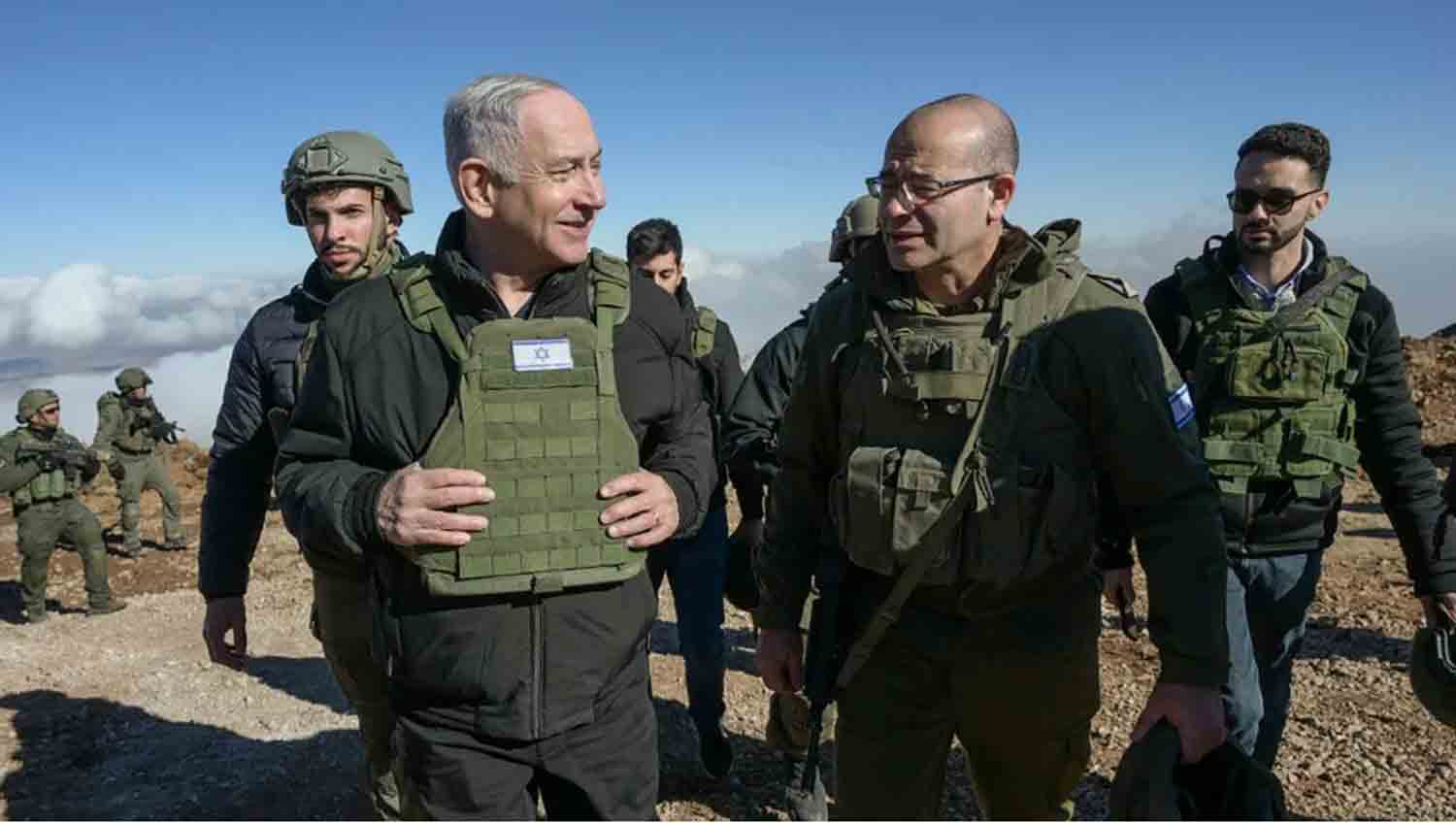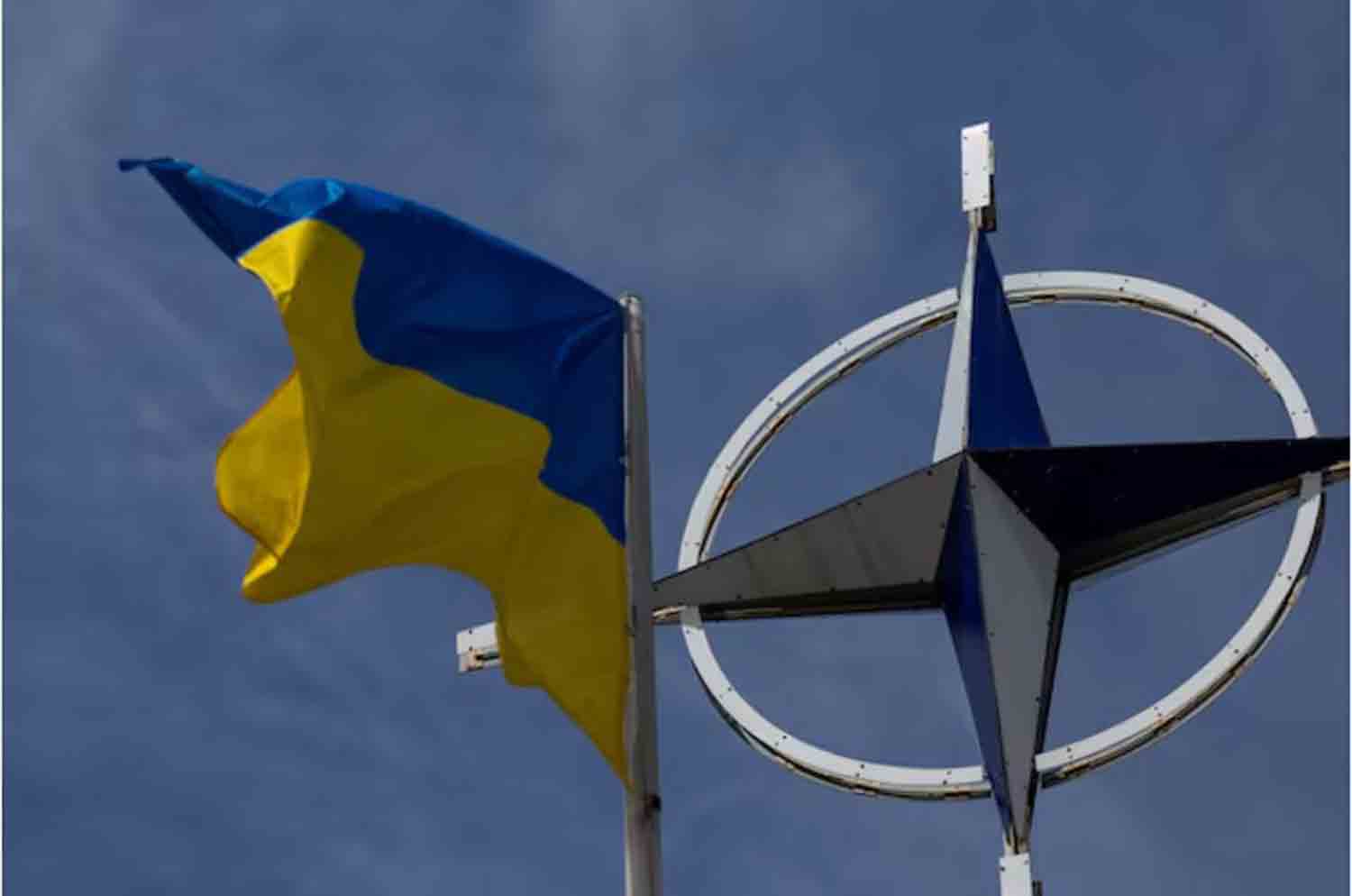The removal of Bashar al-Assad’s regime disrupted an Israeli strategy aimed at fragmenting Syria into three distinct regions to cut its connections with Iran and Hezbollah, as reported by regional security sources familiar with the scheme.
Israel intended to forge military and strategic alliances with the Kurdish forces in the northeast and the Druze community in the south, while maintaining Assad’s leadership in Damascus under the financial and operational support of the UAE.
This approach would also have restricted Turkey’s influence in Syria to the Idlib region and the northwest, which is dominated by Hay’at Tahrir al-Sham (HTS) and other Turkish-supported rebel factions. A recent offensive by these groups significantly contributed to Assad’s recent defeat.
Hints of this plan were evident in a speech by Israeli Foreign Minister Gideon Saar a month prior, where he emphasized the importance of engaging with the Kurds and Druze in both Syria and Lebanon, noting the need to consider various “political and security aspects.”
Saar remarked, “We must view developments in this context and recognize that in a region where we will always be a minority, we can form natural alliances with other minorities.”
However, the situation changed rapidly when Assad’s loyal forces collapsed in Homs and Hama, clearing the path to Damascus.
By that time, rebel forces had already breached frontlines and taken control of Aleppo, Syria’s largest city, with minimal resistance, significantly altering the dynamics of the ongoing civil war.
In the early hours of Sunday, December 8, Syrian Prime Minister Mohammad Ghazi al-Jalali appeared on video expressing his willingness to transfer power peacefully.
HTS leader Ahmed al-Sharaa, known as Abu Mohammed al-Jolani, promptly responded, indicating his readiness to support Jalili’s continued leadership until a transition could be arranged.
As HTS neared the capital, security sources disclosed that the Emirati and Jordanian ambassadors in Syria were urgently working to prevent HTS from seizing control of Damascus.
Jordan took the initiative to rally the Free Syrian Army and allied factions from the south to reach Damascus ahead of HTS.
Prior to Jolani’s arrival, the two ambassadors coordinated with Free Syrian Army fighters to escort the Syrian prime minister from his residence to the Four Seasons Hotel, where they intended to officially transfer state institutions to the southern armed groups, according to security sources who requested anonymity in their comments to Middle East Eye.
Jalali was seen being escorted to the hotel by soldiers from the Hauran region, affiliated with the Fifth Corps, a military unit composed of former rebels who had reconciled with the Syrian government.
“Jalali hesitated and contacted Jolani, who advised him: ‘Don’t do it,’ and Jalali followed that guidance,” a source reported.
Upon realizing that it could not prevent HTS from taking over the country, Israel began targeting Syria’s military assets, including sinking its naval fleet in Latakia and occupying strategic areas such as Mount Hermon, the highest peak in Syria near the Lebanese border and the occupied Golan Heights.
“These weapons were secure under Assad. This illustrates how invested Israel was in maintaining his control. However, they became a risk in the hands of the rebels,” a source noted.
Officials from both Jordan and the UAE have voiced concerns regarding the HTS takeover and the potential emergence of an Islamist-led government in Syria, despite assurances from Sharaa that all factions and religions would be represented.
Since the onset of the Arab Spring revolutions in 2011, the Emiratis have been leading efforts against democratic movements in Egypt, Libya, Tunisia, and Yemen.
Jordan hosts over one million Syrian refugees and shares an extensive desert border with Syria, inhabited by tribes that reside on both sides of the boundary.
In light of recent developments in Damascus, Jordan convened an Arab Ministerial Contact Committee on Syria in Aqaba last weekend.
The subsequent statement emphasized the necessity to “oversee the transition process” and “strengthen efforts to combat terrorism… as it poses a threat to Syria and the security of the region.”
Final moments of Assad’s governance
Insights into the final moments of Assad’s governance have been partially confirmed by Ibrahim al-Amin, the editor of Al Akbar newspaper, who is recognized for his alignment with Hezbollah.
Amin reported that Assad was so certain of Emirati intervention that he delayed his departure from Damascus “until the last hours.”
“One of Assad’s close associates, who remained with him until the very end, indicated that Assad was still hopeful for a significant event to thwart the armed factions’ assault. He believed that ‘the Arab and international community’ would prefer his continued rule over the prospect of Islamists taking control of Syria,” Amin stated.
Assad came to the realization that his situation was dire after Turkish Foreign Minister Hakan Fidan successfully convinced his Russian and Iranian counterparts, Sergei Lavrov and Abbas Araghchi, not to intervene during a conference in Qatar.
Amin noted, “Once the Russians and Iranians communicated to Bashar al-Assad that they would not engage in the conflict, he understood that defeat was imminent.”
Hezbollah also recognized the futility of supporting Assad when they observed that his own forces were unwilling to fight on his behalf, he added.
Meanwhile, the Israeli government’s strategy for the partition of Syria had been developing for weeks, coinciding with a ceasefire agreement with Hezbollah in Lebanon reached at the end of the previous month.
UAE President Mohammed bin Zayed intensified his outreach to the Druze community in Israel, meeting with Sheikh Mowafaq Tarif, the spiritual leader of the Druze, in Abu Dhabi on December 7.
Additionally, a week prior, the US and the UAE engaged in discussions about leveraging the potential lifting of sanctions to encourage Assad to sever ties with Iran and to close the routes used for Iranian arms shipments through Syria to Hezbollah.
The stringent sanctions, referred to as the Caesar Act, enacted by Congress in 2019, are set to lapse on Friday unless they are renewed by US legislators.
On Friday, US officials made their inaugural visit to Damascus for discussions with representatives from HTS, which remains designated as a terrorist organization by the US and other Western nations.
Geir Pedersen, the United Nations’ special envoy for Syria, informed the Security Council on Tuesday that a “smooth end” to the sanctions is essential to meet Syria’s significant needs.
Concerns in Turkey regarding Israeli actions
Israel’s intentions regarding Syria have raised concerns in Ankara well before the current situation escalated.
In October, the Turkish parliament held a closed session to discuss Israel’s military activities, which the Turkish government deemed a “national security threat.”
Two months prior to Saar’s address, President Recep Tayyip Erdogan expressed in September that Israel’s expansionist goals could potentially threaten “parts of Anatolia.”
“Israel’s expansionist agenda, fueled by religious extremism, extends beyond Gaza. Their next target could very well be our homeland,” Erdogan stated.
Fidan, the foreign minister and former head of intelligence, emphasized his point during a question and answer session at the conference in Doha, coinciding with the decline of Assad’s government.
Fidan remarked, “Israel had no interest in or desire for Assad’s ousting,” and noted that the United States had communicated to Turkey that Israel’s primary concern was to retain Assad.
When questioned about Assad’s role within the Iranian axis of resistance, Fidan responded: “Throughout my 13 years as head of the intelligence agency, I maintained communication with Iran. I consistently conveyed that the notion of Assad being a figure of resistance contradicted Iran’s interests.
“In truth, it was an unrealistic concept. It was laughable, and Assad was essentially serving Israel.”
Erdogan’s recent call to action has been supported by his political ally, Devlet Bahceli, the leader of the Nationalist Movement Party (MHP).
Bahceli stated: “Should Israel persist in its expansionist policies and aggressive hegemony, a confrontation between Turkey and Israel will become unavoidable.”
Sharaa has sought to alleviate Western concerns regarding Syria under his leadership potentially becoming a launchpad for attacks against Israel. He told the BBC this week that Syria does not pose a threat to the world and urged for the lifting of sanctions.
Sanctions should be lifted now, as they were aimed at the previous regime. It is essential to differentiate between the victim and the oppressor, he stated.
Security experts are optimistic that it is only a matter of time before Sharaa must confront the issue of the Israeli occupation of Syrian land beyond the Golan Heights, which are internationally acknowledged as Syrian territory but have been occupied and subsequently annexed by Israel since 1967.
Nearly 130,000 Syrians were displaced from their homes during the Israeli occupation of the Golan Heights. They relocated to the outskirts of Damascus, where their population has since expanded to over 800,000. Jolani’s family was among those affected.
“Unlike Sinai, which was occupied by Israeli forces in 1967 and later returned, the Golan Heights has been annexed by Israel. This situation leaves no avenue for peace, as no Syrian would relinquish their claim,” a security expert remarked.
“While Netanyahu may want us to believe he has succeeded in Syria by disrupting the Iranian axis of resistance, the truth is that a new axis is rapidly forming, centered around Turkey and the emerging Sunni Islamist leadership in Syria.
“This development will only exacerbate the challenges for Israel as it confronts the broader Sunni world,” the expert added.
Middle East Eye reached out to the Israeli Ministry of Foreign Affairs for a statement but had not received a reply by the time of publication.
The ministry has previously characterized the incursion of Israeli forces into Syrian territory beyond the occupied Golan Heights as a “limited and temporary operation,” asserting that it was “essential for defensive purposes due to threats from jihadist groups operating near the border.”
On Tuesday, Israeli Prime Minister Benjamin Netanyahu visited troops stationed at the summit of Mount Hermon, stating that Israeli forces would “remain in this critical location until an alternative arrangement is established that guarantees Israel’s security.”
Israel has also expressed disapproval of Turkey’s backing of Syrian rebel factions and military actions against Kurds in northeastern Syria.
In a statement released on Tuesday, the ministry remarked: “Turkey is the last country that should address the issue of occupation in Syria… There is no justification for the ongoing Turkish aggression and violence against Kurds in Syria!”
MEE also sought comments from the foreign ministries of the UAE and Jordan but had not received responses by the time of publication.
In a statement on Monday, the Emirati Ministry of Foreign Affairs noted: “The United Arab Emirates is closely observing the ongoing developments in the Syrian Arab Republic and reaffirms its commitment to the unity and integrity of the Syrian state, as well as to ensuring security and stability for the brotherly Syrian people.”
Jordanian Foreign Minister Ayman Safadi stated on Monday: “This is a historic moment for our brotherly nation of Syria, one that necessitates our collective support for the Syrian people, assisting them in achieving a significant milestone in building a future defined by Syrians themselves, while ensuring Syria’s security, unity, stability, sovereignty, and the rights of all Syrians.”
Discover more from Defence Talks | Defense News Hub, Military Updates, Security Insights
Subscribe to get the latest posts sent to your email.





